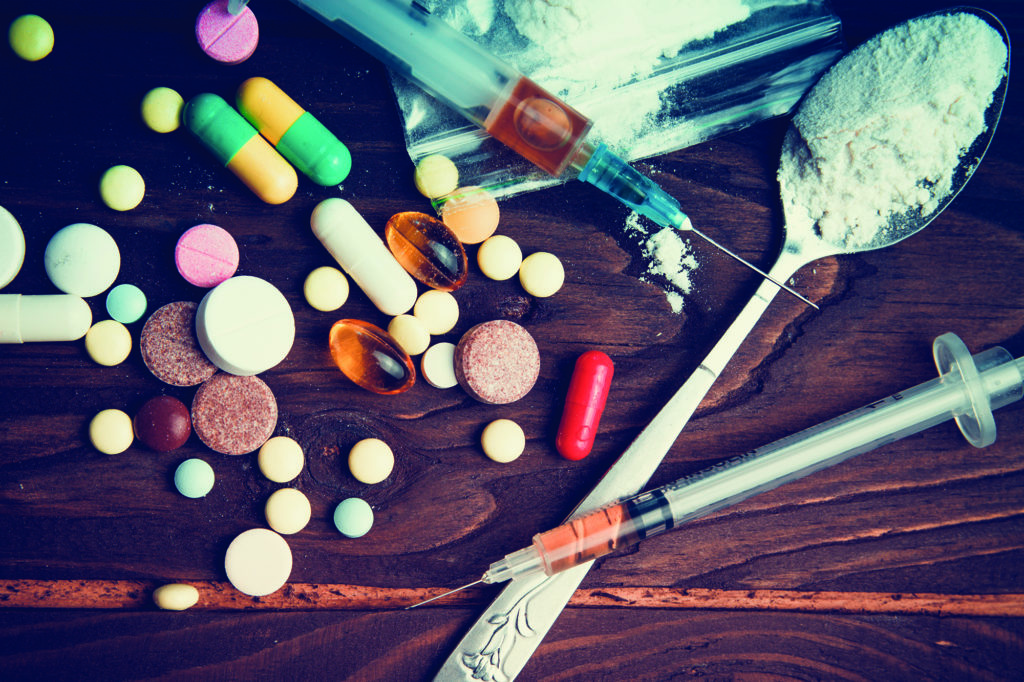
Key facts
- Opioids are pain medicines that must be prescribed by a doctor.
- Opioids are not generally recommended for long-term use, except in people who have cancer or are receiving palliative care.
- Signs of an opioid overdose include vomiting, breathing problems and unresponsiveness.
- Naloxone, a medicine that temporarily reverses the effects of an opioid overdose, is available for free as part of the ‘Take Home Naloxone’ program.
What are opioids?
Opioids are a group of medicines that may be prescribed by a doctor to treat pain. Opioids reduce feelings of pain by interrupting pain signals between the brain and the body.
Opioids work by interacting with the opioid receptors in your brain. This can have several effects, including altering how you feel pain. Some opioid-based medicines your doctor may prescribe include:
- buprenorphine
- fentanyl
- hydromorphone
- methadone
- morphine
- oxycodone
- tapentadol
- codeine
- tramadl
Different opioid medicines are taken in different ways, including as:
- tablets or pills
- patches on the skin
- injections
- intravenous infusions
What is the difference between opiates and opioids?
There are 2 groups of opioids.
Those that occur naturally and come from the opium poppy are called opiates — for example, codeine, morphine and heroin.
Those that are created synthetically, such as pethidine and fentanyl, are known as opioids.
What are the benefits of opioids?
Your doctor might prescribe opioids to:
- treat acute (short-term) pain, such as pain associated with surgery or a medical procedure
- treat chronic pain (pain lasting more than 3 months) caused by cancer
- reduce pain in palliative or end-of-life care
- be a substitution therapy to reduce harm for people who are opioid-dependent
Evidence shows opioid medicines are not very useful for managing chronic non-cancer pain — sometimes called persistent pain.
How are opioid medicines obtained?
In Australia, you need to have a prescription from your doctor to buy opioid medicines. You can’t buy opioids over-the-counter from a pharmacy. For acute pain, your doctor will usually prescribe just enough opioid medicine for you to take while you have severe pain.
Sometimes, opioids are obtained illegally for non-prescribed use.
What are the risks of using opioids?
Like all medicines, using opioids comes with possible risks. All opioids can cause life-threatening breathing problems. The risk is higher:
- when you first start taking opioids
- after a dosage increase
- if you are older
- if you have an existing lung problem
Some of the unwanted effects of opioids may be mild, such as drowsiness, nausea, and constipation.
Others can be serious and may be signs of an overdose.
These signs include:
- shallow breathing
- becoming unresponsive or unconscious
If you, or another person, are experiencing an opioid overdose or a serious side effect, ask for an ambulance.
Opioids may make it difficult for you to drive or operate heavy machinery. If you have recently started taking an opioid medicine or the dosage has changed, you may be at higher risk of having an accident.
There are other factors that may limit your use of opioids — for example, if you drink alcohol or take other medicines that can cause drowsiness, such as sedatives. If these apply to you, you have a much higher risk of side effects from opioid medicines.
Speak to your doctor or pharmacist before taking your opioid with other medicines (prescribed or non-prescribed). Never share your opioids with anyone, or take opioids that have been prescribed for someone else.

Does stopping opioids cause withdrawal symptoms?
If you have been taking an opioid medicine regularly (for more than a few weeks) you may experience temporary withdrawal symptoms if you stop them suddenly.
Opioid withdrawal symptoms can include:
- sweating or hot and cold flushes
- muscle, bone and joint aches and pains or muscle cramps
- nausea, diarrhoea or abdominal cramps
- headaches
- insomnia
- anxiety or agitation
- rapid heart rate (tachycardia)
You may also experience opioid cravings.
If you need to stop your opioid medicine, ask your doctor how to gradually taper (reduce) the medicine to lower your chance of withdrawal symptoms.
If you’re having trouble managing withdrawal symptoms, make sure to let your doctor know. Your doctor may prescribe other medicines to help manage the symptoms.
How can I avoid becoming dependent on (addicted to) opioids?
Opioids are generally not prescribed for long-term use (except in the management of some cancer pain or other exceptional circumstances). This is because tolerance can occur.
Tolerance is when your body ‘gets used’ to the medicine, so you need to take larger amounts of the opioid to get the same effect. Larger doses of opioids increase the risk of experiencing harmful side effects.
Long-term use of opioids can put you at risk of becoming dependent, so make sure you review your medicines with your doctor regularly. Dependence on opioids can still occur even if you take your medicines exactly as prescribed by your doctor.
Your doctor may reduce your dosage of opioids over time and help you introduce other pain management strategies. These may include exercise and counselling services, or other medicines such as paracetamol. These strategies have been found to help many people manage their pain while minimising the risks associated with opioid use.
When should I see my doctor?
If you are taking a prescription opioid medicine, you should check in with your doctor often to make sure that it’s still the best treatment option for you.
If you feel that the opioid you were prescribed is not helping with your pain, discuss this with your doctor. They may recommend a different approach to managing your pain. They can also advise you how to gradually stop taking opioid medicines, to reduce the risk of withdrawal symptoms. You should not change the dosage you are taking without speaking to your doctor first.
If you are concerned about becoming dependent on, or addicted to, opioids, see your doctor. They may slowly decrease the amount of opioid you are taking or enrol you in an opioid substitution treatment program.
Signs of an opioid overdose include:
- slow, difficult or shallow breathing
- vomiting
- a gurgling or choking sound
- bluish skin and nails
- being unresponsive or unrousable (not able to react)
The signs of overdose are the same whether the opioid was a prescribed medicine or it was obtained or used illegally.
Access to overdose-reversing medication
Naloxone is a medicine that can temporarily reverse the effects of an opioid overdose. The Australian Government is offering this medication free of charge and without a prescription to people who may experience, or witness, an opioid overdose.
What is naloxone?
Naloxone treats opioid overdose by temporarily blocking opioid receptors. This prevents the opioid drugs from working. Naloxone doesn’t make people feel ‘high’ and doesn’t cause addiction. There have been no reported deaths from naloxone overdose.
Naloxone is injected into a muscle or given as an intranasal (nose) spray. In the event of an emergency opioid overdose, naloxone can be administered by family, friends or bystanders. Note the dose and the time the naloxone is given, so you can tell emergency medical professionals, such as paramedics, when they arrive to assist.
Naloxone stays in the body for a shorter time than many opioid drugs. Naloxone works for around 30 — 90 minutes, while heroin and other opioids stay in the body for much longer (more than 12 hours, for some sustained-release opioids). If you take or give someone naloxone, be aware that the overdose can resume after the naloxone stops working.
It’s common for people who have taken or been given naloxone to crave more opioids. Taking more opioids after taking naloxone could cause a second overdose and is especially dangerous.



